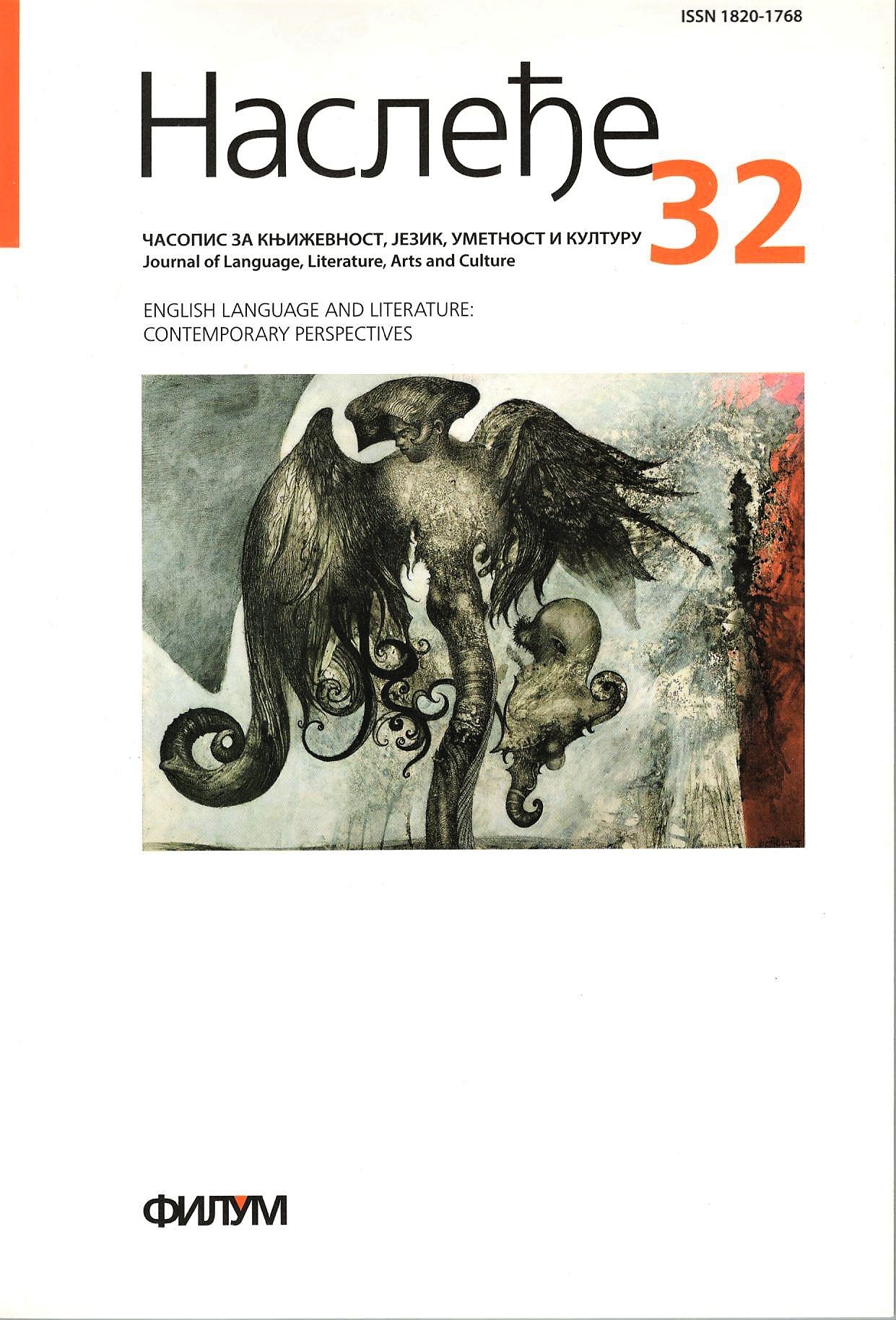TEACHERS’ PERSPECTIVES ON THE USAGE OF SOCIAL NETWORKS AND LMSs IN LANGUAGE TEACHING
Keywords:
Learning management system, social networks, language teaching/learning, university teachingAbstract
A Learning Management System (LMS) is a web-based system that allows learners to authenticate themselves, register for courses and complete them, and take assessment tests. The aim of this paper is to determine the extent to which English teachers in Serbia are familiar with LMSs and use them in foreign language teaching. The main instrument used in data collecting is a questionnaire that comprises ten close-ended questions and two open-ended questions designed to define teachers’ familiarity with the key terms related to LMSs and the type of applications they use in their teaching process. The survey has included 31 respondents – English teachers from Serbian highereducation institutions. The results of the questionnaire show that the majority of the respondents are familiar with the abbreviations associated to LMSs but not with E-learning. Although the examined teachers agree that the usage of LMS can improve the process of teaching and motivate even shy students to participate in class activities, only 29% of the teachers know how to use the system, while 19% of them are still unsure about it. The respondents also consider LMS to be an easy and quick way for sharing teaching materials among students. Thus, it can be concluded that the implementation of LMS into university teaching curricula may lead to a new kind of learning resources development and learning management, while the conducted survey and similar ones can offer an insight into students’ and teachers’ perspectives on formal learning/teaching by means of LMS and social networks.
References
ADL Instructional Design Team 2010: Choosing a Learning Management System CC: Attribution Noncommercial-Share Alike 3.0. ‹http://www.adlnet.gov/wpcontent/uploads/2013/05/Choosing_an_LMS.pdf› 17.10.2014.
Bell et al 2002: M. Bell, D. Bush, P. Nicholson, D. O’Brien, T. Tran, Universities Online: A Survey of Online Education and Services in Australia, Canberra: Department of Employment, Training and Youth Affairs. ‹http://hdl.voced.edu.au/10707/20311›. 13.10.2014.
Bishop, Verleger 2013: J. L. Bishop, M. A. Verleger, The flipped classroom: A survey of the research, Atlanta, GA: American Society for Engineering Education (ASEE) National Conference Proceedings. ‹http://www.asee.org/public/conferences/20/ papers/6219/view›. 13.10.2014.
Beatty, Ulasewicz 2006: B. Beatty, C. Ulasewicz, Faculty perspectives on moving from Blackboard to the Moodle learning management system, TechTrends, 50(4), 36-45.
Bremer, Bryant 2005: D. Bremer, R. Bryant, R., A Comparison of Two Learning management Systems: Moodle vs. Blackboard. Concise papers. Otago Polytechnic. Dunedin, NZ, 135–140.
Carlson 1998: P. Carlson, Advanced Educational Technologies – Promise and Puzzlement, Journal of Universal Computer Science, 4(3), 210-215.
Flowers et al 2000: L. Flowers, E. T. Pascarella, C. T. Pierson, Information Technology Use and Cognitive Outcomes in the First Year of College, The Journal of Higher Education, 71(6), 637–667.
Friesen 2012: N. Friesen, Report: Defining blended learning. ‹http://learningspaces.org/papers/Defining_Blended_Learning_NF.pdf›. 17.10.2014.
Gallagher 2005: June P.S. Gallagher, Design for Knowledge Management. Paper presented at the Innovations in E-Learning Symposium 2005, Fairfax.
Huang, Liaw 2005: H. M. Huang, S. S. Liaw, Exploring users’ attitudes and intentions toward the Web as a survey tool, Computers in Human Behavior, 21(5), 729-743.
IEEE Learning Technology Standards Committee (LTSC) 2001: Draft Standard for Learning Technology Draft 9. ‹http://ltsc.ieee.org/›. 13.10.2014.
Kezar 2000: A. J. Kezar, ERIC Trends 1999–2000: Teaching and Learning. Washington, DC: ERIC Clearinghouse on Higher Education.
Kim et al 2005: K. J. Kim, C. J. Bonk, T. Zeng, Surveying the future of workplace e-learning: the rise of blending, interactivity, and authentic learning, eLearn, 2005(6), 2.
Kuh, Hu 2001: G. D. Kuh, S. Hu, The Relationships Between Computer and Information Technology Use, Selected Learning and Personal Development Outcomes, and Other College Experiences, Journal of College Student Development 42(3), 217–232.
Kuh, Vesper 2001: G. D. Kuh, N. Vesper, Do computers enhance or detract from student learning?, Research in Higher Education, 42(1), 87-102.
Larsen, Ege 2012: L. Larsen, J. Ege, Teacher and student perspectives on a blended learning intensive English program writing course, Graduate Theses and Dissertations (paper 12375). ‹http://lib.dr.iastate.edu/etd/12375›. 13.10.2014.
Lavooy, Newlin 2008: M. J. Lavooy, M. H. Newlin, Online chats and cyber-office hours: Everything but the office, International Journal on ELearning, 7(1), 107–17.
Merisotis, Phipps 1999: J. P. Merisotis, R. A. Phipps, What’s the Difference?, Change, 31(3), 12–17.
Miyazoe 2008: T. Miyazoe, LMS-based EFL blended learning: Blackboard vs. Moodle. In K. Bradford Watts, T. Muller, M. Swanson (eds), JALT2007 Conference Proceedings. Tokyo: JALT, 745– 754.
Moore, Kearsley 1996: M. G. Moore, G. Kearsley, Distance education: A systems view. Belmont, CA: Wadsworth Publishing Company.
Tomei 2009: L. M. Tomei, Lexicon of Online and Distance Learning. Lanham, MD: Rowman & Littlefield Education.
Woodall 2010: D. Woodall, Blended learning strategies: Selecting the best. <http://www.skillsoft.com/assets/white-papers/blended_learning_strategies_wp.pdf>. 14.10.2014.






